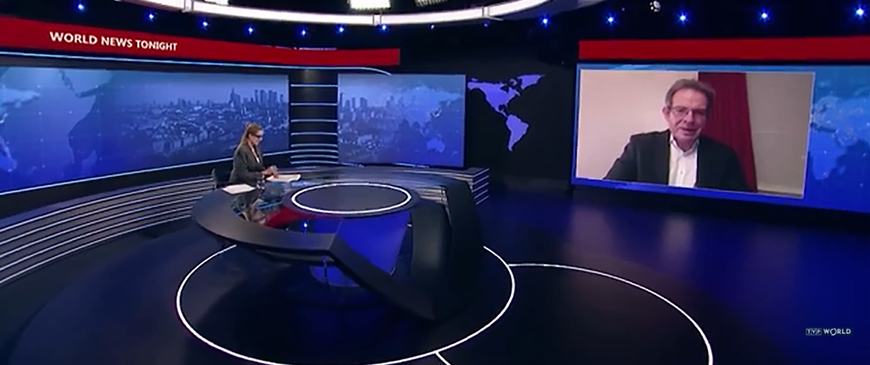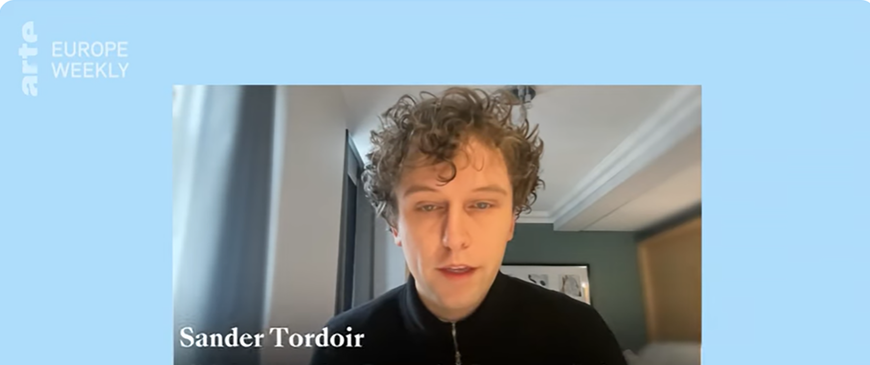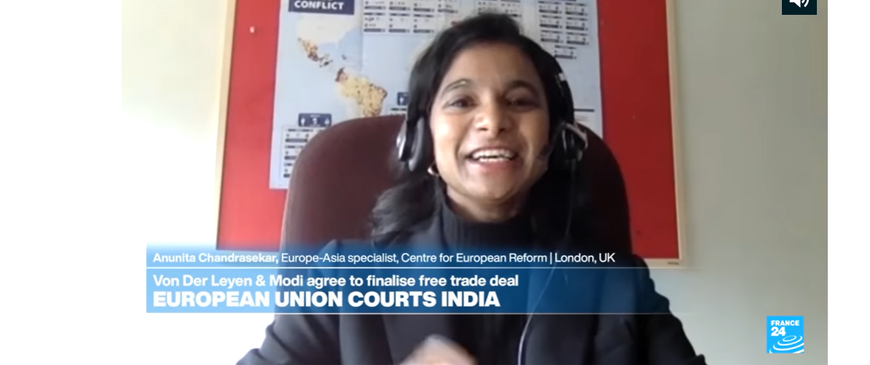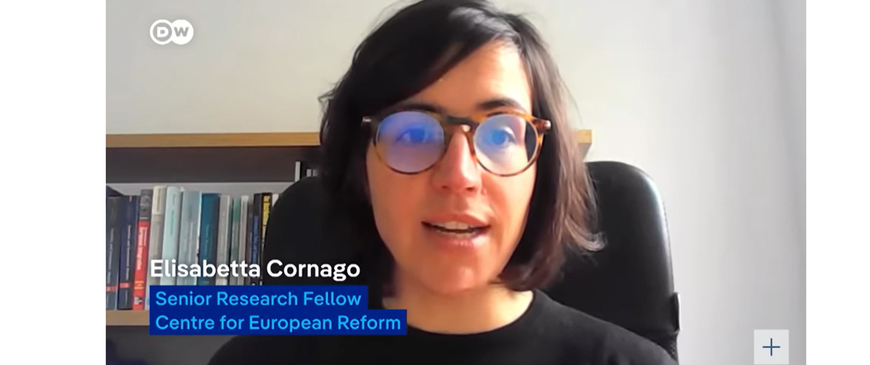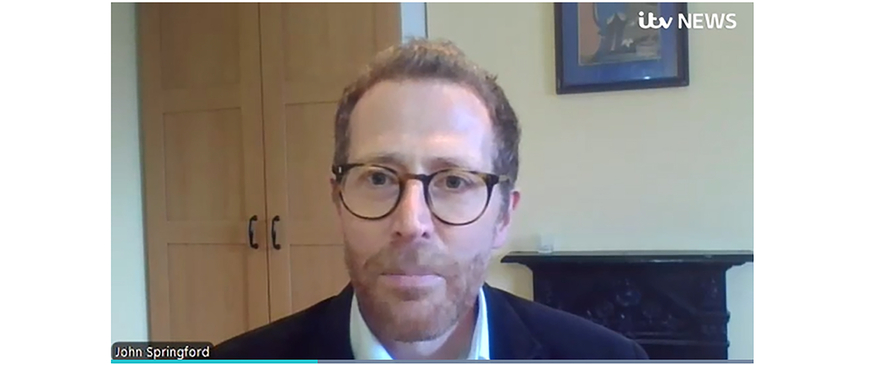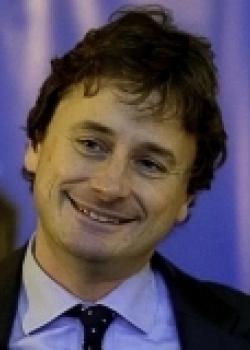Press
Shale gas popularity rising but experts remain divided
29 November 2010
Hürriyet Daily News
The new US shale phenomenon is tied to favorable legislation on excavation permits, isolated and uninhabited areas and the growth of small, "technology-savvy" energy companies, according to Katinka Barysch, deputy director of the Centre for European Reform. … Barysch also said European experience with shale gas could not be compared to the US due to long-term contracts between Gazprom, the main Russian gas exporter, and several EU member states.
Splits in eurozone emerge amid debt crisis
29 November 2010
New York Times
"I don't think it's sustainable in the absence of a much greater degree of political and economic integration," said Simon Tilford, chief economist at the Centre for European Reform, a research institute based in London. … "It's very hard for any economy to flourish in the teeth of fiscal austerity of this magnitude — let alone those that can't devalue," Mr Tilford said. … Mr Tilford, of the Centre for European Reform, is skeptical of that argument.
'Annus Horribilis' for Europe's year-old Lisbon reforms may lead to new treaty
28 November 2010
Jakarta Globe
"Is the European Union functioning moderately better? Yes!" said Hugo Brady, of the Centre for European Reform. … "Ashton, whose new diplomatic corps also officially begins business on Wednesday, had an even tougher job to do than Van Rompuy … She had to fight to get inside the bureaucracy … It's now a grumpy teenager, hopeful after its preadolescent difficulties of growing up."
Migration woes to colour key Africa-EU summit
26 November 2010
The Gazette
"What's needed is a special summit on immigration, but it's still early days," said Hugo Brady of the Centre for European Reform. … "The fate of the EU and Africa are joined together over the next 20 years … If you don't put in place a legitimate system to deal with immigration there'll be problems, aggravated by climate change decreasing farming land in Africa."
Analysis: Thinking the unthinkable - a eurozone breakup
26 November 2010
CNBC
"My guess is that for quite a few years yet policymakers will do whatever they can to save this thing," said Katinka Barysch, deputy director of the Centre for European Reform. "If you sit in London, it's doomed. They don't understand the political investment. They look at the bond spreads and think it's doomed."
NATO, Russia to co-operate on missile defence
24 November 2010
The Prague Post
"It comes down on two different sides: One is the obvious one that is if this is a real resetting of relations with Russian, everyone benefits, and Central Europe will benefit the most," said Tomas Valasek, a foreign policy and defence expert with London-based think-tank the Centre for European Reform. "On the other side, Central Europe doesn't want to spend too much time on a reset because NATO doesn't have the power to change Russia's thinking; Russia will always see it as an unfriendly alliance.
Ireland bailout reignites fears about the future of the euro
24 November 2010
Deutsche Welle
Turning the eurozone into a larger Germany, says Philip Whyte with the Centre for European Reform in London, could have adverse consequences - not only for the country itself but also for Europe and even the rest of the world. He maintains that "a more German eurozone" would be afflicted by chronically weak demand, debilitating cycles of competitive wage cuts and prolonged economic slumps in the deficit countries. Like many others, Whyte agrees the time has come to make some tough decisions.
Domino effect hits Europe
24 November 2010
RIA Novosti
Charles Grant, director of the authoritative British think-tank, the Centre for European Reform, argues that the Europeans will have no option but to rebuild the EU on Germany's federative model. The Germanic nations, including the Austrians, the Dutch and the Scandinavians, will be only too glad to see that happen, enthusiastic as they are about Berlin's on-going efforts to restore order to the eurozone. Other EU nations are displaying distinct resistance to this prospect of German domination.
Britain can't escape the euro crisis
23 November 2010
Global Post
But the assistance is "an act of self-preservation" rather than an act of friendly charity, according to Philip Whyte, senior research fellow at the Centre for European Reform. "Implicit in the bailout of Ireland's banks is the bailout of one's own banking system."
Ireland refutes the German perspective
23 November 2010
Financial Times
As Philip Whyte has noted in a paper [Why Germany is not a model for the eurozone] for the pro-European Centre for European Reform, the eurozone is far too large to play such a role in the world economy.
Germany's unlikely optimists
23 November 2010
Financial Times
"It is over-egging it to say that Germany has become a dynamic growth motor for the rest of Europe," says Simon Tilford at the Centre for European Reform, a London think-tank. "If foreign demand for German products falls, we could see a renewed push by German companies to reduce wage costs and renewed stagnation of domestic demand."
Fear stalks eurozone as Ireland faces ruin
23 November 2010
The Times
Charles Grant, director of the Centre for European Reform think-tank, said: "This Irish rescue doesn't end the eurozone crisis at all. It will be a bloody mess for five years at least. The crisis will persist because the structural causes remain."
Germany aims to take Europe's reins amid eurozone's woes
22 November 2010
The Guardian
"The euro is the biggest crisis facing Europe and it could carry on for another five years," said Charles Grant, director of the Centre for European reform. "The French are fearful of German euroscepticism, of German economic success, of the Germans going it alone on Russia and China, so they will go with Berlin. The Germans are back in the driving seat."
Questioning Germany's economic model for Europe
22 November 2010
New York Times
Elsewhere, Philip Whyte of the Centre for European Reform, a British research organisation, foresaw "deeply pernicious consequences" if Germany's economy emerges as the EU benchmark for everyone else. "A more German eurozone," he wrote, "would be afflicted by chronically weak demand, debilitating cycles of competitive wage cuts, and prolonged economic slumps in the deficit countries."
EU to test Yanukovich on democracy
22 November 2010
Financial Times
Tomas Valasek, director of foreign policy and defence at London's Centre for European Reform, said that under Mr Yanukovich Ukraine is "turning inwards and becoming increasingly authoritarian. The EU should discourage Mr Yanukovich from building a one-party system, while supporting economic and energy reforms," he added.
Eurozone must deal with two urgent questions
21 November 2010
Financial Times
"The plan has caused political consternation and market panic," observes Katinka Barysch, deputy director of the Centre for European Reform think-tank.
Más gobierno para salvar al euro
21 November 2010
El Pais
Y Simon Tilford, economista jefe del CER, asegura que "los países del euro tienen que reconocer que una exitosa unión monetaria requerirá un grado mucho mayor de integración política".
Lights are dimming for the euro
21 November 2010
The Sunday Times
The Centre for European Reform's chief economist Simon Tilford says: "I don't think the current membership of the euro is written in stone." For a country to leave, he says, would be "very messy and risky" but it is no longer inconceivable. … Would Italy [which already has huge debts] be able to underwrite another X billion of debt, given that the markets might be sceptical they would get it back? I don't know," Tilford says.
Austerity may not doom European governments to fall
19 November 2010
Reuters
"The politicians have succeeded for now in imposing spending cuts, but what happens in round 14 or 15 of those cuts," said Charles Grant, director of the Centre for European Reform in London. "I think Ireland can take a lot more pain as the Latvians did, but I'm not convinced the Greeks and some Mediterranean countries with no tradition of budget discipline will."
Stunde der Buchprüfer
19 November 2010
Frankfurter Rundschau
"Die Körperschaftsteuer gehörte zu Faktoren, die die irische Wirtschaft über Jahre haben wachsen lassen, auch wenn sie nicht allein für die Ansiedlung einer Vielzahl ausländischer Firmen verantwortlich war", sagt Simon Tilford, Wirtschaftsexperte des Centre for European Reform.

